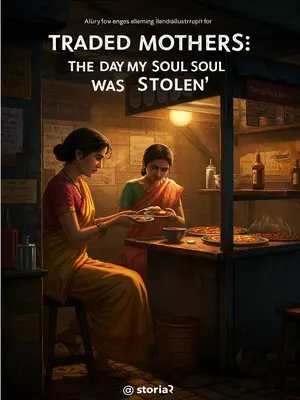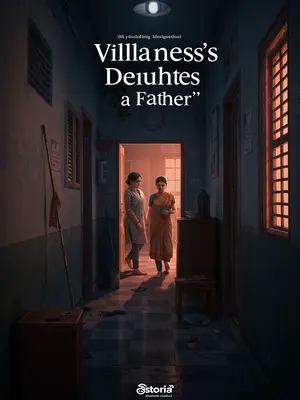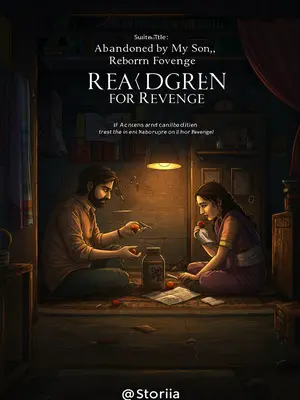Chapter 4: Dinner and Denials
The aroma of jeera rice and dal filled the room, but no one seemed hungry. The dining table was set, the TV played a saas-bahu serial at low volume, and every clang of the serving spoon felt loaded with meaning.
As I walked in, Arjun—back from work, sleeves rolled—was already raising his voice. He sounded like the courtroom hero of a TV drama. The others watched him, waiting for him to restore order or pass judgment.
"Maa, Papa, how can you just give Ananya’s room to someone else? She’s never slept in another bed, na. How will she manage now?" He glared at me as if I’d walked into a family pooja with muddy shoes.
When he finally turned to me, his disapproval was clear—he took in my faded jeans, scuffed suitcase, the defiance in my eyes.
"Just came back and already snatching rooms. You really can’t wait, can you?"
His words stung. All my life I’d fought for a corner to sleep in. Here, the battle was for something more: dignity.
Papa and Maa Mehra’s faces darkened, blaming me for the storm. I stared right back. In families, blame is like the aloo in a samosa—always there, even if you can’t see it.
Kabir tried to explain, "Bhaiya, Ananya wanted to give up the room herself." His voice was small, but no one listened.
Arjun stopped short, the TV’s dramatic music filling the silence. Ananya tugged his sleeve, pleading, "Bhaiya, don’t say any more. This was always Didi Ritu’s."
Her words sounded practiced, but her face was full of grievance—the look of someone playing martyr, but wanting the world to notice.
Arjun patted her hand, then shot daggers at me. "Ananya offered because she’s kind, but you should be considerate too. She isn’t used to sleeping elsewhere. After dinner, move out and pick another room."
I ignored him, turning to Maa and Papa Mehra. "And you two? Do you agree with him?"
Papa Mehra pressed his lips, looking away, hand gripping his steel glass. Maa Mehra said, "Ritu, your brother does have a point. Ananya really can’t sleep in another bed."
She sounded exhausted, wanting me to play along with their script.
"But I don’t want to move," I replied, sitting down with deliberate calm. "And I don’t think Arjun’s words make sense."
I pulled out my old Nokia, the one with the cracked screen, and hit play. The metallic click turned every head. Our afternoon conversation—me choosing the room—spilled into the dining room, word for word.
Kabir’s eyes widened, Arjun’s jaw tightened, Ananya shrank into her chair. There’s nothing more Indian than catching someone red-handed, even if it’s only with their own words.













